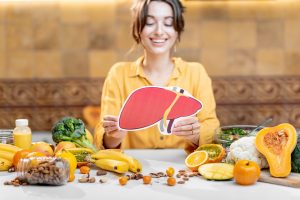 Your liver is the unsung hero of your body.
Your liver is the unsung hero of your body.
It’s something that keeps you moving, although it’s unlikely you’d ever stop to think about it. It’s like your mail carrier or internet provider: you barely notice it when it’s functioning, but are in big trouble when it’s gone.
Advertisement
The only difference might be that your liver is all those little things that make life smooth all wrapped up into one. It has wide-ranging responsibilities and is always under the threat of attack from viruses, toxic substances, contaminants, and disease.
Although your liver can handle a lot, it can only take so much abuse. But like you might notice when your mail doesn’t get delivered or your internet craps out, an injured liver often bears no symptoms until it’s too late.
Every day your liver is responsible for:
- Cleans your blood by metabolizing alcohol, medication, and destroying any poisonous substances.
- Regulates and releases your body’s energy supply. This includes producing and storing glucose that helps keep your mind and muscles ready to work.
- Manufactures essential proteins to transport nutrients, clot blood, and build immunity.
- Balances hormones
- Regulates cholesterol
- Regulates the supply of essential vitamins and minerals
- Produces bile to help eliminate toxic substances from your body
So, how do you take care of this thing? A liver cleanse diet? Hell no. Those promise-the-world products don’t do anything. Your liver doesn’t need to be cleaned or “detoxed.”
But that doesn’t mean you don’t have to take care of it.
The three biggest causes of liver disease are diet, weight, and alcohol consumption. Diet might be the biggest. High-sugar diets, and those high in processed foods, can beat your liver down excessively.
Food choice is the best place to start if you want to acknowledge and start caring for your liver. Eating more fruits and vegetables can help optimize lever function, as can cutting back intake of refined and processed foods. Water can play a big role, too.
Advertisement
It’s best to take a holistic dietary approach instead of focusing on a few specific foods. So ask yourself how many whole, unprocessed foods you eat every day and go from there. Focus on eating more of the good fresh stuff instead of being concerned about how many grams of broccoli you should eat each day.
A healthy diet will typically translate into weight loss, so it’s like two birds with one stone for your liver.
It’s not a normal thing to think about your liver. But paying a little attention and offering some appreciation can go a long way. Because the truth is you don’t want to be forced to have to think about it.
